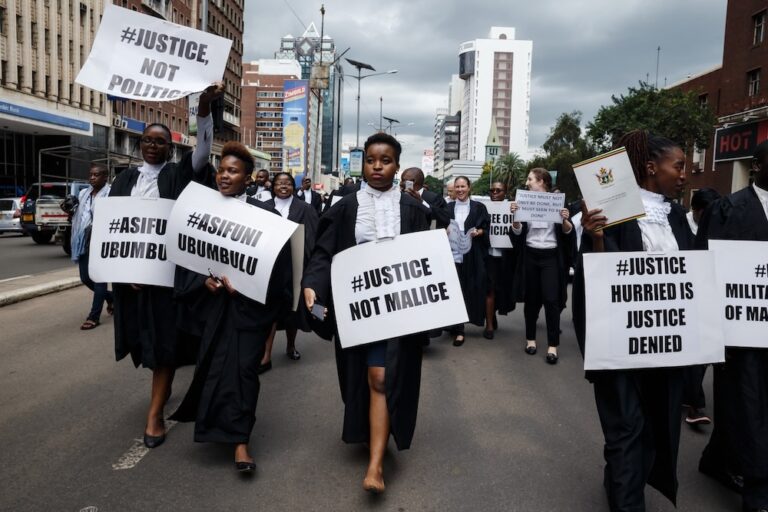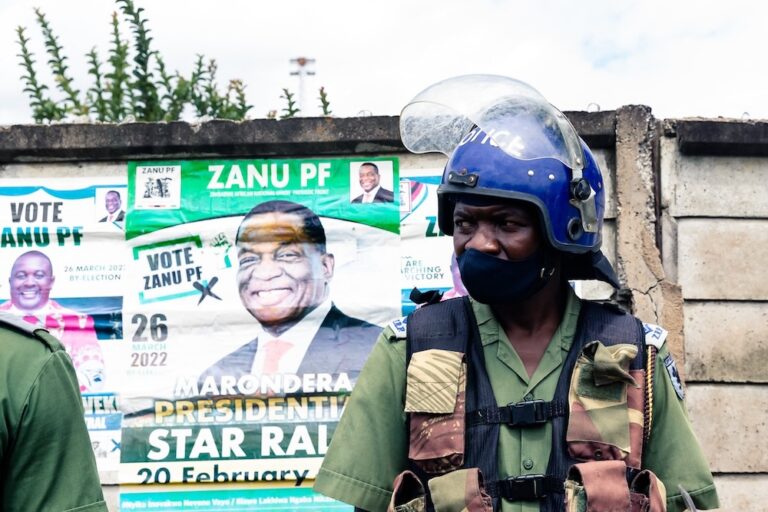The Zimbabwean government has lifted a ban which prevented the BBC and CNN from operating in Zimbabwe.
(MISA/IFEX) – The Zimbabwean government has lifted a ban which prevented the British Broadcasting Corporation (BBC) and Cable News Network (CNN) from operating in Zimbabwe. The move came after a series of meetings the organizations held with the Minister of Media, Information and Publicity, Webster Shamu, Permanent Secretary George Charamba, and Principal Director Sylvester Maunganidze. The BBC last conducted its operations in Zimbabwe in 2001, five weeks after the authorities expelled the organization’s Harare correspondent, Joseph Winter, while CNN ceased its operations after the authorities allegedly questioned the organization’s coverage of the country’s land reform program.
A first meeting with the BBC delegation, which comprised its World News Editor Jon Williams, Africa Bureau Editor Sarah Halfpenny, and Gringo Wotshela, was held on 19 July 2009. Subsequent meetings were also held with CNN Johannesburg Bureau Chief Kim Norgaard.
In a letter to the BBC after the meetings, Shamu said the government never banned the organization from reporting in Zimbabwe. “We agreed that whatever communication problems the BBC and the officials of the Zimbabwe may have had in the past, the Zimbabwe government never banned the BBC from carrying out lawful activities inside Zimbabwe. For the purposes of the record, I restate the main points of our meeting. We acknowledged the need to put behind us the mutually ruinous relationship of the past,” reads the letter.
According to the letter, the BBC and the government agreed that the organization would employ locals at its proposed Harare Bureau. The news organisation was, however, still free to send its crews to Zimbabwe whenever the need arose. It was also agreed that BBC and CNN would respect local legislation and uphold professional standards.
The BBC and CNN have yet to indicate when they will start broadcasting from Zimbabwe.
MISA-Zimbabwe’s position
MISA-Zimbabwe welcomes this development as progressive since the free flow of information results in an informed society that has capacity to influence how it is governed.
The government should, in a similar vein, revisit the issue of banned publications such as “The Daily News,” “Daily News on Sunday,” “The Tribune” and “Weekly Times” by speedily processing their licenses as agreed to under the terms of the inclusive government’s Global Political Agreement (GPA). The government can further demonstrate its commitment to freeing the media environment by repealing repressive legislation such as the Access to Information and Protection of Privacy Act (AIPPA) and the Broadcasting Services Act (BSA) to allow the entry of new players into both the print and broadcasting sector.
Under Article 19 of the GPA, signed by Zanu-PF and the two MDC formations paving the way for the formation of the inclusive government, the parties agreed that the government would ensure the immediate processing by the appropriate authorities of all applications for registration and re-registration in terms of the BSA and AIPPA.


